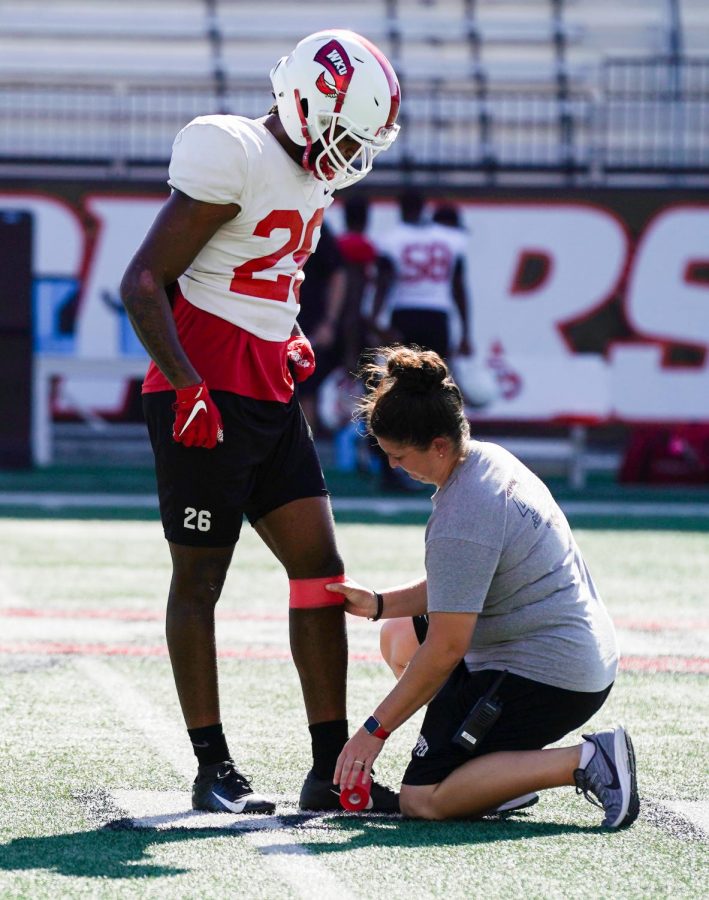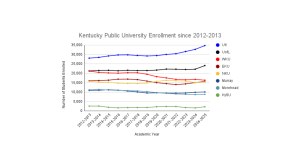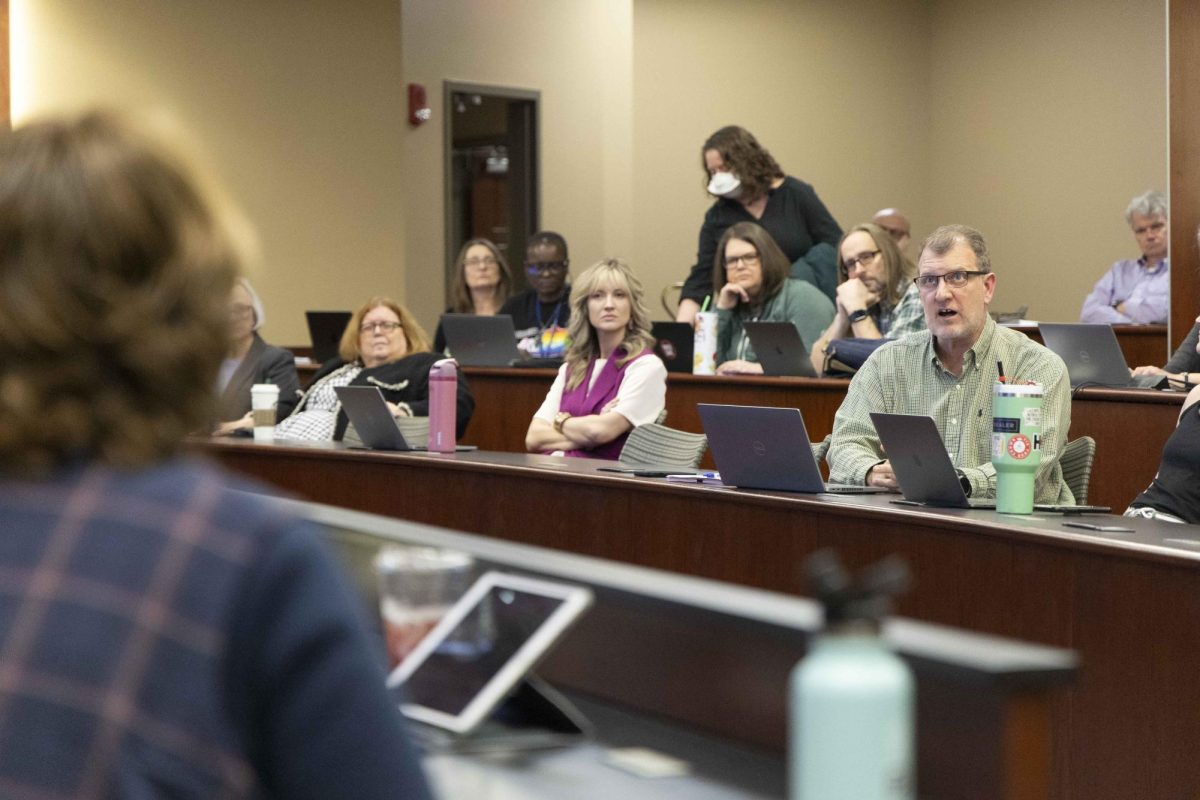‘Not just a qualified female’: WKU head football athletic trainer breaks down barriers
September 24, 2019
Last August, Jessica Judd was enjoying her honeymoon in St. Lucia with her newlywed husband, Michael, when she received a phone call. On the other end of the line was Mike Gaddie, WKU’s associate athletic director for sports medicine and athletic training.
At the time, Judd was the assistant athletic trainer for the WKU football team. During the phone call, Gaddie told Judd she was being promoted to the role of head football athletic trainer.
No sooner than Judd hung up the phone, she joined a highly exclusive club.
She instantly became one of only 11 female head football athletic trainers in the Division I Football Bowl Subdivision, which she said only added to the excitement of her new marriage.
“I was just excited that people had the respect of me and understood that I do have the skill set and the ability to be the head football athletic trainer,” Judd said. “Obviously the coaches trusted me and believed that I could do the job appropriately, and Mike Gaddie gave me all the confidence in the world that I could do the job that was needed.”
Where it started
Judd’s journey to becoming an associate athletic trainer at WKU began long before that phone call.
While Judd was a senior in high school in her hometown of Toledo, Ohio, she took an introduction to athletic training course for college credit at the University of Toledo. The class sparked her interest, so she decided to run with it.
Judd was also an athlete herself, playing soccer, basketball and volleyball in grade school before rowing for four years once she got to high school.
“I got to be around the athletes,” Judd said. “I got to kind of see the behind the scenes, if you will. Being able to treat those kids and get them back on the field and watch them perform is kind of what interested me the most. Just being able to have that influence on them.”
After graduating high school in 2005, she received a Bachelor of Science with a concentration in athletic training from the University of Alabama in 2010. Judd later received a Master of Science with a concentration in kinesiology and health from the University of Wyoming in 2012.
While Judd was in college, she was assigned to a different sport every semester. Football was one of her first rotations, and Judd said she really enjoyed the chaos of it all.
“I never saw myself sitting behind a desk nine to five — that kind of thing,” Judd said. “So football was always very different — every single day you see different things, different injuries.”
The path to a dream job
But the path wasn’t always clear.
Judd had to work from the bottom up to get to the position she’s currently in. After graduating from the University of Wyoming, Judd didn’t want to settle for anything other than the football position she was waiting for — even if that meant not having a job.
Judd said she waited two months for an opportunity to be an athletic trainer for a football program, but the delay was worth it to get the position she “needed to get” at the time — an internship as an assistant trainer for the football team at Louisiana Tech in 2012.
After working with football and track during her second year with the Bulldogs, Judd stayed on for a third and final year at LA Tech in a new role she wasn’t expecting.
Keith Bunch, now the head football athletic trainer at Middle Tennessee State, decided to leave LA Tech in 2014. Judd said Bunch was very influential, and he taught her all she needed to know during their two years together. Judd became the interim head football athletic trainer after Bunch’s departure, and Judd said he helped her gain the confidence to do the job.
“Holy [expletive],” Judd said about what was going through her head when she was promoted. “It was a very cool experience because then I had the OK of the head football coach, which, that’s tough enough as it is — especially being a female.”
After a three-year stint with the Bulldogs, Judd came to WKU prior to the 2015 football season as the program’s assistant athletic trainer. Judd said her journey at LA Tech was coming to an end, and she felt like it was time to “get to another stepping stone” at a new place.
Judd spent three seasons as WKU football’s assistant athletic trainer before she earned the promotion to associate athletic trainer prior to fall camp in 2018. Judd said she wasn’t surprised when she became the first-ever female in charge of the athletic training staff for WKU football.
Instead, she felt prepared. Former WKU head football athletic trainer Bryan Schneider, now the head football athletic trainer at James Madison, prepared her for the post by giving her an autonomous role, allowing her to perform many of a head trainer’s duties as an assistant.
Even when the promotion came and Judd became one of the few female head football athletic trainers in charge of an FBS team, she took it in stride.
“Honestly, I don’t really look at it as I’m their first female [head athletic trainer],” Judd said. “I’m just happy that I have the skill set they’re looking for. It’s great for females that we can have these kind of roles — one in 11 is wonderful, and I’d love to see more of it.”
What it entails
Judd said her current role involves much more administrative work, which sometimes requires delegating training responsibilities to her support staff of athletic trainers and undergraduate interns.
Making the ultimate decision regarding the care of the football program’s student-athletes is Judd’s primary duty, but she can’t perform it effectively without collecting input from the WKU coaching staff. Judd said everyone on staff is very receptive to her input and values her opinion.
“I feel like I’m a qualified person, not just a qualified female,” Judd said. “So I think they see that I’m qualified as an athletic trainer.”
What it means
Head coach Tyson Helton said Judd does a wonderful job with the players — she’s thorough and constantly on top of her responsibilities. Helton said he couldn’t say enough positives about the job Judd does and the great rapport she’s built with the players and staff.
“Two of the most important roles on a football team in an organization is the strength coach and the training staff because they deal with the players every single day,” Helton said. “You know, people think a lot of times, ‘hey, it’s the position coach or the head coach’ — we’re not around those guys near as much as the strength coach and the trainers are. So she really has a great feel for the team. She’s able to get close to those players, to their parents. She does a fantastic job.”
Judd said getting each player out of the training room and back onto the field is the most important objective she looks to reach every day.
“The goal is not for them to be in here,” Judd said. “I’d love to have everyone practicing, everyone being able to produce. That’s why they came here.”
Freshman tight end Joshua Simon is new to the program, but he’s already sustained an injury requiring Judd’s assistance. Simon said Judd has been good to him in their limited interactions so far, and the trainer is well-liked in the locker room.
“You come see her, you tell her what’s wrong, she can help you out,” Simon said. “You let her know what you got going on, and she’ll do the best that she can for you.”
Redshirt sophomore defensive end Juwuan Jones said it’s important to have a good relationship with Judd because when players get hurt, she’s the one that ultimately has to take care of them.
It’s not smart to be on anyone’s bad side that wants to take care of you, Jones said.
“Oh, she always looks out for us,” Jones said. “She’s there for treatment if you need it … She’s very instrumental in keeping us healthy and well.”
Judd said quite a few players call her “mom” or see her as a motherly figure. However, she’s a “tough mom” whose personality works well with a male-dominant sport.
“I’m tough on the athletes,” Judd said. “If you tell me that something hurts, I’m gonna be seeing if you can still be able to work through it, which coaches appreciate … I’m willing to push these kids to not just sit out.”
Following her footsteps
Now in her second season as the team’s head athletic trainer, the 31-year-old said she gets to work each morning around 5:30 a.m. and usually heads home around 8 p.m. Between 6 a.m. lifts, carting kids on crutches to and from class throughout the day, taping, multi-hour evening practices and post-practice treatment, Judd has no shortage of tasks.
She said she understands her limitations, which include not being able to go into the locker immediately after practice and never putting herself in situations that might make the athletes feel uncomfortable. But Judd said she’s still able to coax the players into doing whatever she needs them to do, which means other aspiring females should feel enabled to follow her path.
“I would love to be seen as a role model [to young women],” Judd said. “It is obviously possible — you just definitely have to work hard at it. It’s important that anyone that’s willing to do this understands that there are going to be challenges, and you can’t just fly through it. It’s not an easy task. So it’s important that you are actually qualified to do the job even if you’re a female.”
Reporter Alec Jessie can be reached at 270-745-6291 and alec.jessie226@topper.wku.edu. Follow Alec on Twitter at @Alec_Jessie.

















